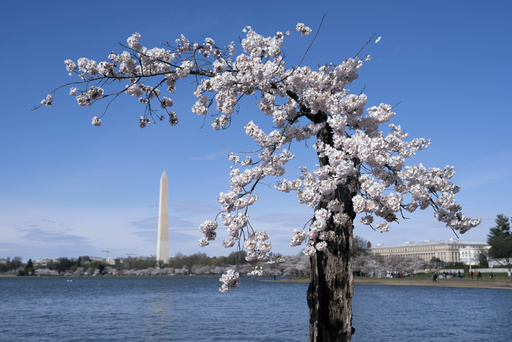Washington –
Stumpy, the famous cherry tree that captured the hearts of many on social media, has a chance at a comeback. The stunted tree, along with over 100 others, was cut down after the 2024 National Cherry Blossom Festival to allow for repairs to the deteriorating seawall protecting the Tidal Basin. However, the National Arboretum has successfully grown clones of Stumpy, known as Stumplings, which may be returned to the original site in the coming years.
Earlier this year, samples and clippings from the original Stumpy were carefully transported to the Arboretum for cultivation. Despite the complexities and uncertainties of the process, five healthy young plants have now taken root under the Arboretum’s care. Horticulturist Piper Zettel emphasized the patience required, as nurturing these plants to maturity will take time.
While the newly propagated trees hold the genetic identity of the original Stumpy, they are still in their early stages of growth and will require years of careful tending before they are ready for public viewing. The National Park Service is anticipating the completion of the seawall repair project by spring 2026, ahead of the expected influx of tourists for the 250th anniversary of the Declaration of Independence, but whether Stumpy 2.0 will be ready by then remains uncertain.
Stumpy gained fame on social media during the pandemic, sparking a dedicated fanbase and even prompting creative merchandise. The recent construction work at the Tidal Basin signifies the start of a critical repair project that has long been overdue. The deteriorating seawall faces challenges due to rising water levels, necessitating urgent repairs to prevent flooding and preserve the iconic cherry blossoms.
The $133 million seawall repair project, expected to be completed by spring 2026, will improve visitor experiences and ensure the longevity of the historic Tidal Basin area. Despite the impact on the 2025 cherry blossom season, National Park Service officials are emphasizing the necessity of the construction work and the long-term benefits it will bring to the site.
